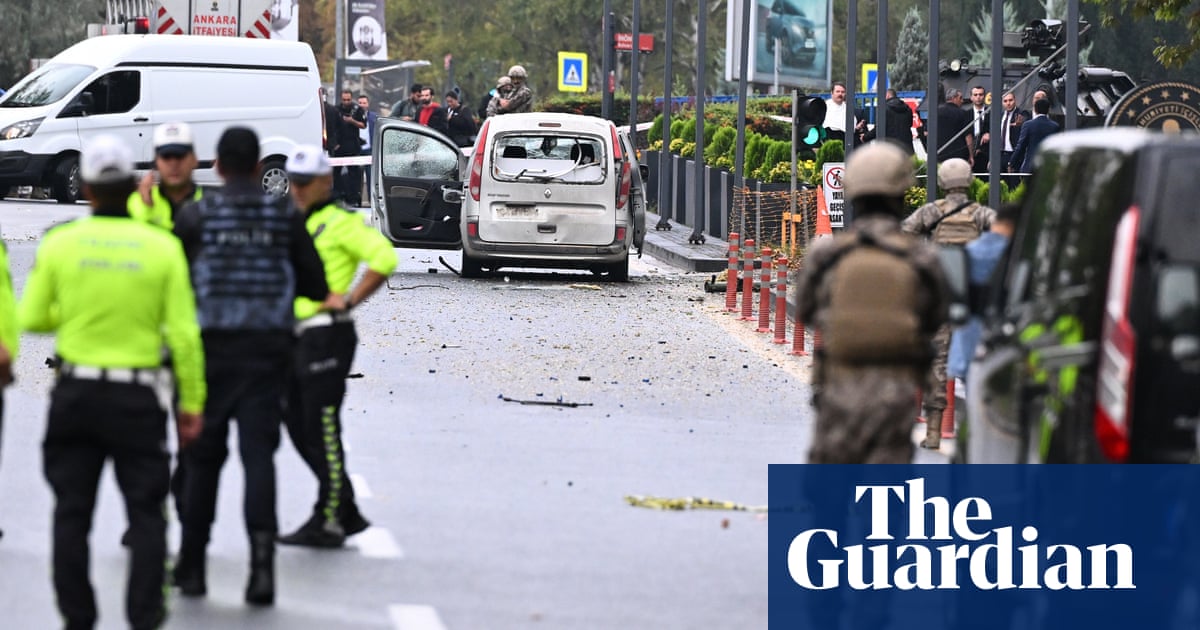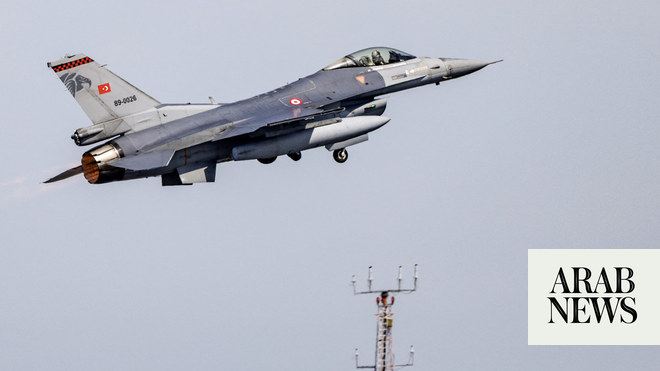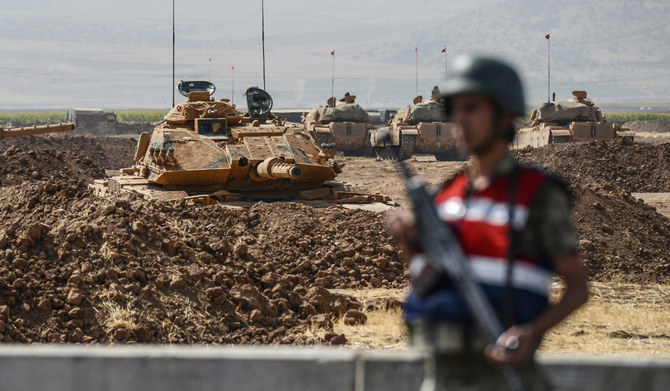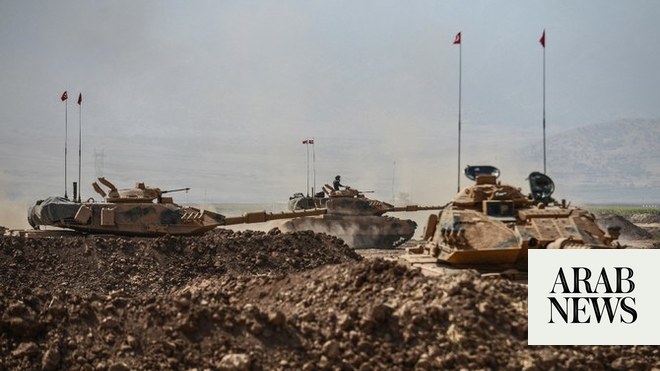
The Turkish defence ministry says its warplanes have carried out raids on suspected Kurdish rebel targets in northern Iraq on Sunday after a suicide attack on a government building in the Turkish capital.
A ministry statement said 20 targets of the Kurdistan Workers’ party, or PKK, were “destroyed” in the aerial operation, including caves, shelters and depots.
Earlier, two assailants detonated a bomb in front of Turkish government buildings in the heart of Ankara, in what authorities said was a terrorist attack that left both dead and two police officers wounded.
Kurdish militants later claimed responsibility for the blast, which was the first in the Turkish capital since 2016 and happened less than a mile away from the parliament building on Sunday, hours before lawmakers were due to return after a three-month summer break. In a speech to mark the reopening, the president, Recep Tayyip Erdoğan, slammed the morning attack as the “last flutters of terrorism”. He added: “Those who threaten the peace and security of citizens have not achieved their goals and never will.”
An offshoot of the Kurdish militant group, the Kurdistan Workers’ party (PKK), the Kurdistan Freedom Hawks (TAK) claimed responsibility for the attack. The same group was responsible for two bombings that struck the Turkish capital in 2016.
“It was specifically envisaged that this action would be carried out on the opening day of parliament, very close to the parliament building,” they said in a statement released by a Kurdish news agency.
They group added that the time of the attack was chosen to avoid larger casualty numbers. “It took place exactly as planned, without any obstacles.”
Ali Yerlikaya, the interior minister, said on the social media platform X that two attackers approached the general security directorate building at about 9.30am local time on Sunday in a commercial vehicle.
According to Yerlikaya, one detonated explosives, killing themselves in the process, while the second was killed by gunfire from security forces stationed outside the building.
Two police officers were slightly injured in the incident, he added.
Erdoğan also nodded towards potential changes to Turkey’s constitution in the coming parliamentary term, after an election earlier this year where his opponents warned against an increasing concentration of power around the presidency.
Referring to a thwarted military coup in 2016, Erdoğan said that Turkey “deserves to crown its struggle for democracy with a civilian constitution. Let us not delay this longing.”
After the attack, authorities closed one of the Turkish capital’s main thoroughfares, which passes close to a number of state institutions including the parliament building.
Police also announced they would carry out controlled explosions for “suspicious package incidents” in other parts of the city.
According to the state-run Anadolu news agency, Turkey’s criminal court of peace in Ankara issued a ban on media access and publication about the attack.
Turkish authorities last year passed a sweeping new law intended to curb “disinformation”, with those accused of breaching the law threatened with up to three years in prison.
The law came into force shortly before an assailant detonated a bomb on one of the busiest shopping streets in Istanbul last November, killing six people and wounding at least 81. Turkish officials blamed Kurdish militants for the attack.
The attack in Ankara follows a spate across Turkey in recent years that officials largely blamed on members of the Islamic State or Kurdish militant groups.
In February 2016, a bomb struck a convoy of vehicles carrying military personnel during rush hour in Ankara, killing 30 people and wounding 60.
A month later, a second bomb struck a central boulevard in Ankara, killing 37 people and injuring 125. The TAK claimed responsibility for both attacks.
Echoing a response to previous attacks, Turkish officials rushed to condemn alleged disinformation about the latest attack in Ankara.
Fahrettin Altun, who heads Turkey’s directorate of communications, an institution affiliated with the presidency, cautioned Turkish citizens against the spread of what he labelled disinformation.
“We would like to emphasise once again the importance of our media continuing its news activities on the subject with a sense of responsibility,” Altun said on X, formerly known as Twitter.
Yerlikaya warned Turkish social media users against sharing images of the attack online. “We launched an investigation against those who shared images on social media. I warn them, please delete the images,” he told a press conference.
The interior minister, recently appointed in a cabinet reshuffle after the election, thanked the media for covering the attack in Ankara while reminding them of a broadcast ban imposed by the watchdog, the Radio and Television Supreme Council (RTÜK).
He added: “We are deeply wounded by today’s incident … Let me warn people who share these images once again, please delete them, do not disrespect our pain.”











